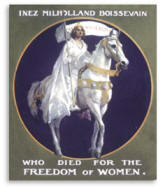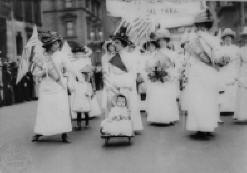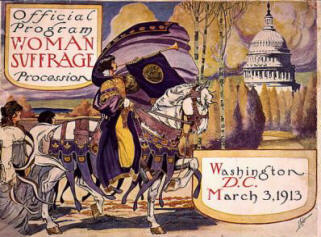Men who favored the new cause gathered, for example, in the Fabian Society. The supporters' common aim was to encourage women to liberate themselves from male domination, manage their own lives, and leave behind anything that might restrict their pursuit of happiness and their self-realization.
Heavily opposed by conservatives, the New Woman movement started to fade away in the course of the First World War when, due to a shortage of "manpower", many women took on jobs and when, shortly after the war, universal suffrage was achieved. Universal suffrage is the extension of voting privileges to all adults, without distinction to race, sex, belief or social status. It is usually considered the hallmark of modern democracies.
Certain characteristics were seen as pertinent to the new ideal. By general consent, a "New Woman" was supposed
- to have received an adequate education (primary, secondary and preferably also tertiary) and to be able to use her knowledge wisely;
- to earn her own money and thus be financially independent;
- to participate in political discussion and decision-making processes;
- to decide herself if, when and whom she wants to marry and how many children she wants to have;
- to show outward signs of being different by wearing more comfortable clothes;
- and, generally, to defy convention and social norms in order to create a better world for all.








